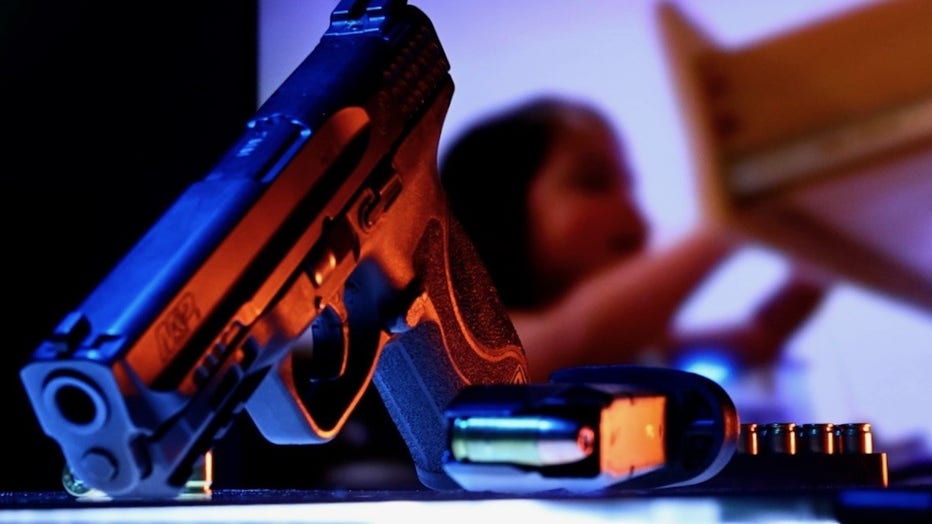Children's Healthcare of Atlanta ER doctor urges parents to unload, lock guns

Doctor shares gun safety tips for families with children
Studies show nearly 1,300 children under the age of 18 die from shootings every year. Experts say nearly a third of children live in a home with at least one gun. One emergency room doctor shared a few gun safety tips to help families with children in the home avoid tragedy.
ATLANTA - Each year in the US, nearly 1,300 children under the age of 18 die after being shot.
Nationwide Children's Hospital's Center for Injury Research and Policy found one in three families with children have at least one gun in the house.
Researchers at Nationwide Children's found most the victims of unintentional shootings are boys, who are shot by a family member, usually a brother, or a friend, and nearly 40% of all unintentional shooting deaths in children between the ages of 11 and 14 happen at a friend's home.
If you have a gun at home, storing the firearm out of reach or out of sight is not enough to keep it out of the hands of children or teenagers, says Children’s Healthcare of Atlanta emergency medicine physician Dr. Kiesha Fraser Doh.
Children have a knack for finding things they are curious about, she says.
"So, the first thing that I recommend for all parents is that if they have a firearm in their home, that they recognize their child could have access to it," Dr. Fraser Doh says. "Just like how your child can find the candy that you put away from them or the cookies or the sweets or the Christmas presents, they're going to have access to the gun, if it's in your home."

So, Fraser Doh recommends a three-step approach to storing firearms supported by Children's Healthcare's of Atlanta's Strong4Life program.
"First, you want to unload your firearm after you finish using it," she says. "You would then want to lock it up in a safe, Then, you want to make sure your ammunition is stored separate from your firearms. Ideally, the ammunition should also be locked up."
So, again, unload the gun, lock it up in a lock box or gun safe, and store the bullets separately.
Next, Dr. Fraser Doh says, ask questions.
You may have your gun securely stored, she says, but do not assume others do.
Ask friends and relatives if they have guns in their homes, where they keep them, and whether the guns are unloaded and locked up
"You don't know what your neighbors are doing, and you don't know what the grandparents are doing, or anyone else, their best friends, play dates," Fraser Doh says. "So, always ask before your child goes to someone else's home, 'How is your gun stored? Do you have any unsecured firearms in your home? Does my child access to a gun in your home?'"
Dr. Fraser Doh says it may feel awkward to ask other adults about their guns, but do it anyway.
"There are different ways to pose that question," she says. "(You can say) 'Hey, you know I'm worried about my child's safety. My child is impulsive. How do you store the firearm in your home?'"

